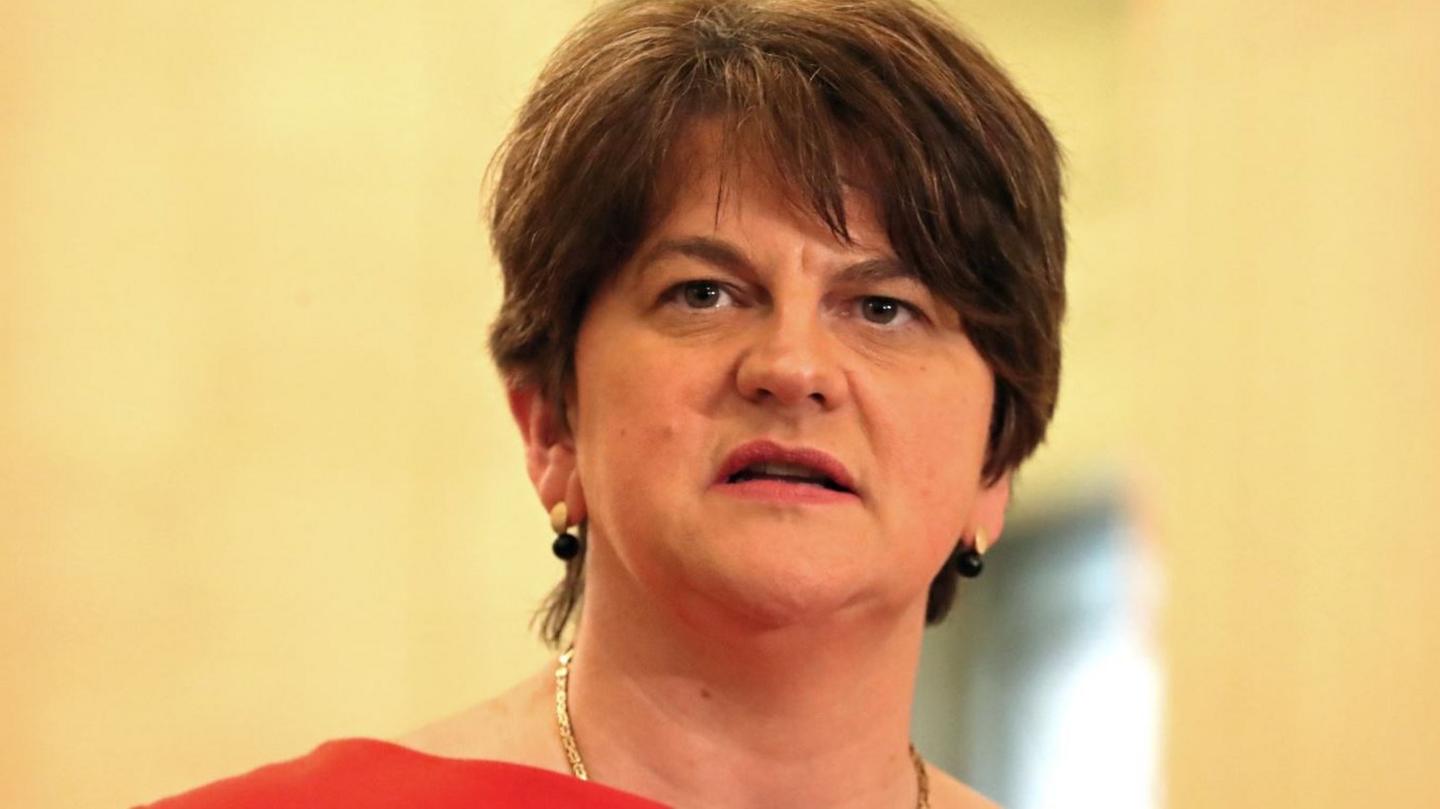Brexit: Colum Eastwood says leaders must work together over NI Protocol
- Published
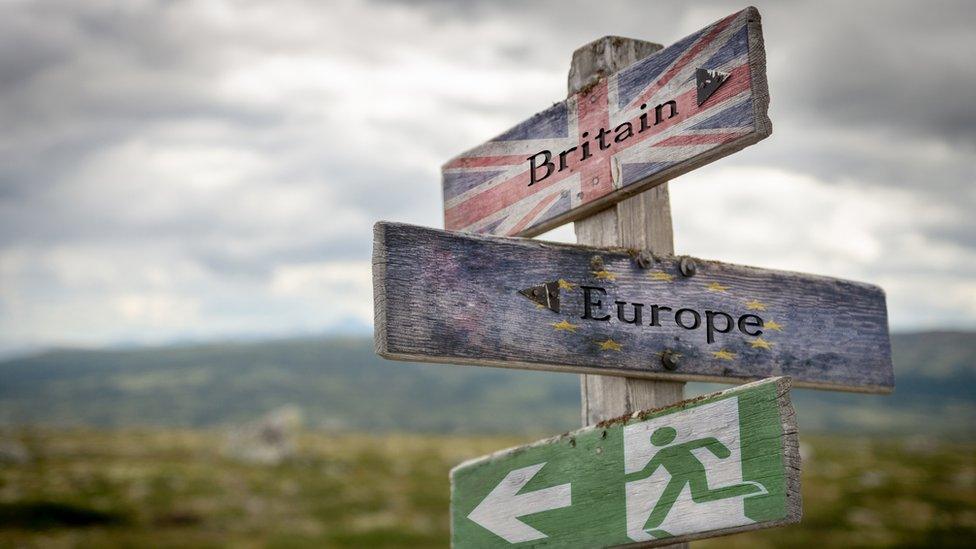
SDLP leader Colum Eastwood has appealed to political leaders to "work together" to resolve a row over the NI Protocol.
Unionist parties accused the EU of hypocrisy after it sought to trigger a Brexit safeguard to control the export of coronavirus vaccines into NI.
They urged No 10 to take action, but Mr Eastwood has warned against "knee-jerk" responses.
Democratic Unionist Party leader Arlene Foster repeated that it had been an "act of hostility" by the EU.
"We were told there was no way that you could have a hard border on the island of Ireland, but yet 29 days into the protocol the EU doesn't seem to have any difficulty in putting a hard border into the island of Ireland," she said on Monday.
What is the row about?
The EU's move to trigger the Brexit safeguard came amid a dispute over vaccine producer AstraZeneca's delivery commitments to the EU.
The bloc agreed to buy up to 400m doses of the AstraZeneca vaccine last year, and on Friday the EU's drugs regulator approved their use for all adults.
But the firm said that due to problems at one of its EU factories, supplies would be reduced by about 60% in the first quarter of 2021.
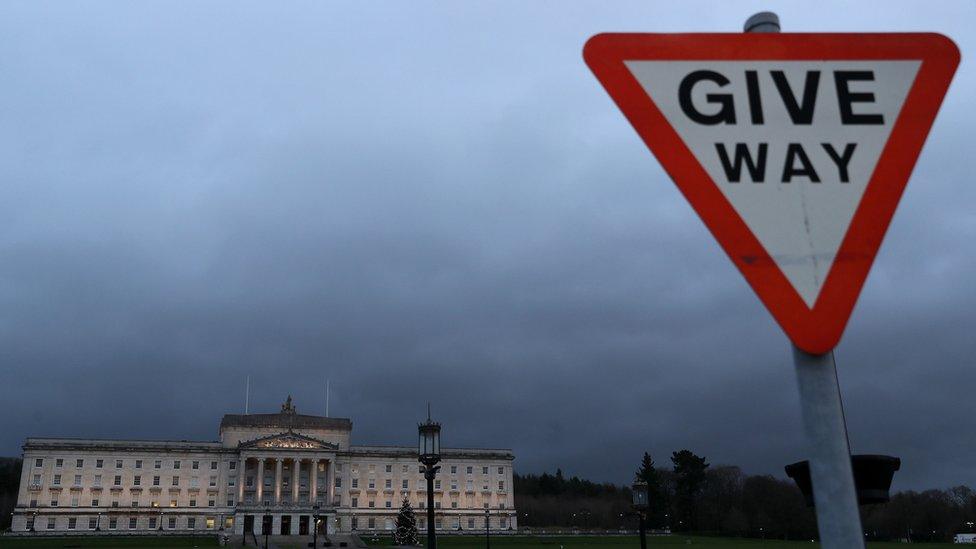
The SDLP leader said it was important unionist politicians "showed leadership"
The move could have seen checks at the Irish border to prevent shipments of the vaccine entering the UK.
However, the EU subsequently reversed its decision to trigger the emergency provision, known as Article 16 of the NI Protocol.
But political tensions have not subsided.
What is the NI Protocol?
The protocol, which is part of the Brexit Withdrawal Agreement, is designed to allow the free movement of goods from the EU into NI, and prevent the need for a hard border on the island of Ireland.
Article 16 is essentially a safeguard that would allow the UK or EU to act unilaterally if measures imposed as a result of the protocol are deemed to be causing "serious economic, societal or environmental difficulties".
What has been the response?
On Monday, Health Minister Robin Swann claimed the EU's proposal to trigger Article 16 could have had "potentially very real implications" for NI's vaccine supplies.
He told the assembly further stocks of the vaccine were "in transit" to NI on Friday evening, when the row erupted.
A Department of Health spokesperson said the minister was referring to a delivery of Pfizer BioNtech coming through Dublin.
"Had Article 16 been enforced, we may have seen difficulties in the supply and arrivals of vaccines here in Northern Ireland," said Mr Swann.
"The vaccine is not something that should become political."
The minister added that while political "noise" was being made on Friday night, his officials were working "behind the scenes" to ensure the supply of vaccine arrived in NI and was fit to be distributed.
Meanwhile, Mr Eastwood called on other political parties to "dial down the rhetoric", insisting the consequences of Brexit mean full implementation of the protocol remains the only solution.
"It is important in the coming days that unionist politicians show leadership and that all of us work together to make sure the Northern Ireland Protocol operates effectively," he said.
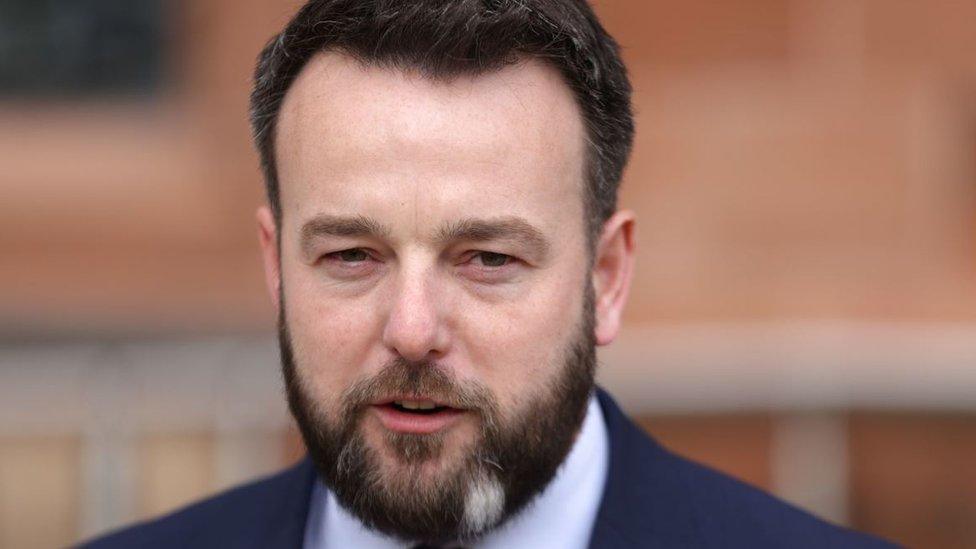
Colum Eastwood warns against "knee-jerk reactions"
"The events of Friday show the grave sensitivity around these issues and it is now vital that political leaders in Ireland, Britain and the EU focus on the way forward."
Mrs Foster has urged Prime Minister Boris Johnson to invoke Article 16 to address trade flow problems between GB and NI, as some businesses grapple with post-Brexit arrangements for importing food products.
On Monday, she accused Mr Johnson of "a dereliction of duty" and said he had stood by and allowed "UK citizens to suffer".
"These are not teething problems, they are problems affecting businesses and people all over Northern Ireland," she continued.
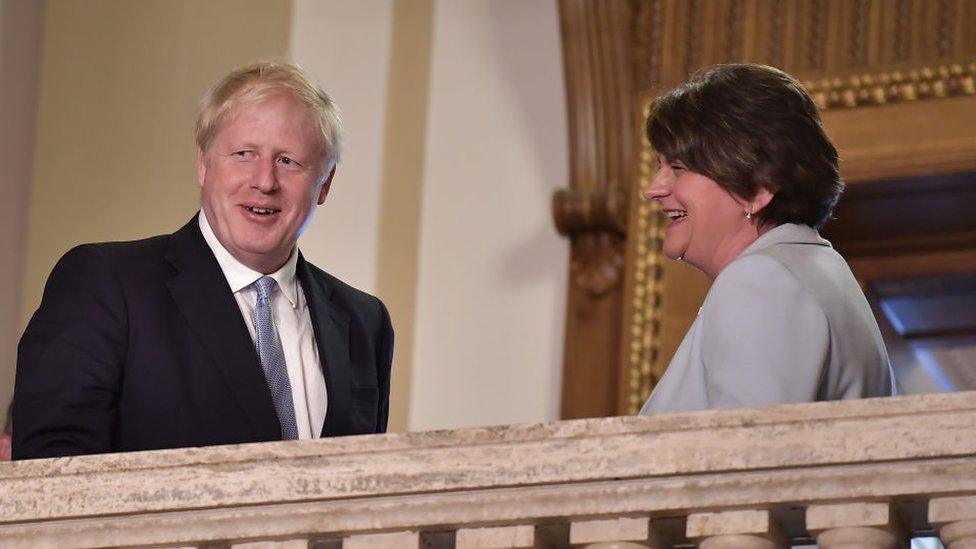
Arlene Foster accused Boris Johnson of a dereliction of duty towards NI citizens
"If the EU are genuine and they want to do what's right for the people of NI, then they will come together and work with our government to make sure that we deal with all these issues that are causing so much difficulty."
Sinn Féin MP Chris Hazzard said the EU's actions were "reckless" and "disproportionate".
"We could have been looking at a situation descending into chaos on Friday night," he continued.
The South Down representative said it was not what Article 16 was designed for.
"I think once the EU Commission and [Ursula] von der Leyen herself specifically understood those consequences, they very quickly made that climbdown and didn't pursue that course of action," he added.
Alliance Party MP Stephen Farry said it would be "completely spurious" to suggest the UK should trigger Article 16, describing it as a "race to the bottom".
"We need to avoid being sucked into that temptation and instead we have to focus on the very practical issues of how the UK and the EU Commission can work over the coming days and weeks to try to find some genuine long-term flexibilities and derogations in relation to the protocol," he said.
He said this could help "smooth out some of the problems that have been encountered so far".
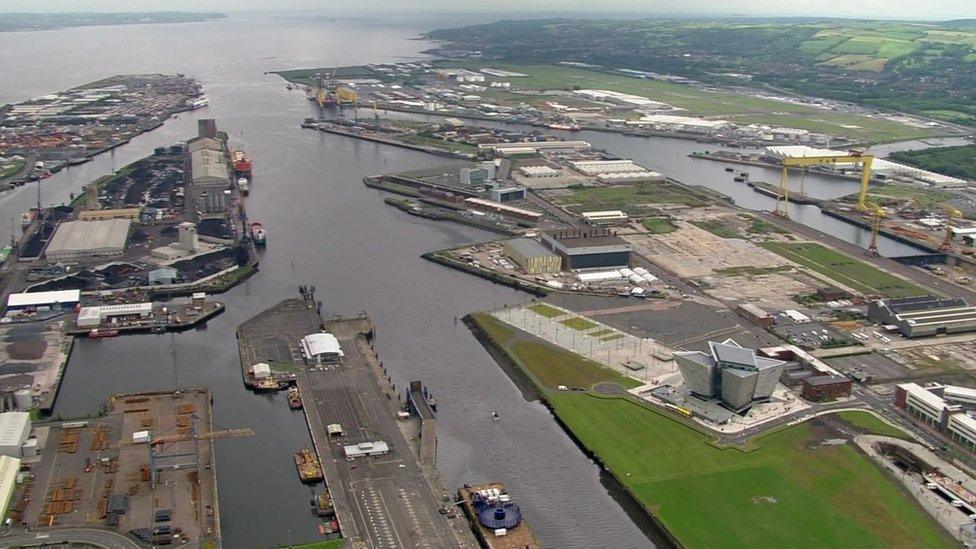
The Ulster Unionist Party has set out a list of proposals to tackle the disruption to trade
Simon Hoare, chair of the NI Affairs Committee at Westminster, said there was "discourtesy" shown towards Northern Ireland, Dublin and London by the triggering of Article 16, however, he did not believe there was a "conspiracy".
The Conservative MP said "two wrongs do not make a right" and "organisations of all sizes can make mistakes".
"You do not make Friday any less bad by Westminster repeating the same thing," he added.
"The worst thing that could happen now, as far as businesses and communities in Northern Ireland are concerned is another period of uncertainty and flux by tearing up the protocol and going back to first base."
Changes to the protocol?
The Ulster Unionist Party (UUP) has set out a list of proposals to tackle the disruption to trade, which it blames on the Northern Ireland protocol.
It includes:
Extending the current grace periods - which were introduced to allow businesses time to adapt to the new regulations - to 12 months
Setting up a task force to consult with stakeholders to identify problems and agree solutions
Legislation to ensure GB companies offer equality in provision of goods across the UK
Creating a new offence to stop goods being exported to the EU through Northern Ireland which are not compliant with EU single market rules
Setting up a compliance body to replace the need for EU customs officials at the ports.
"The Northern Ireland Protocol continues to pose serious challenges to the economic and constitutional integrity of the UK. " said UUP leader Steve Aiken.
"These proposals are an attempt in good faith to provide possible solutions and start a conversation around how we bring an end to the barriers being faced by businesses and consumers."
Related topics
- Published30 January 2021
- Published31 January 2021
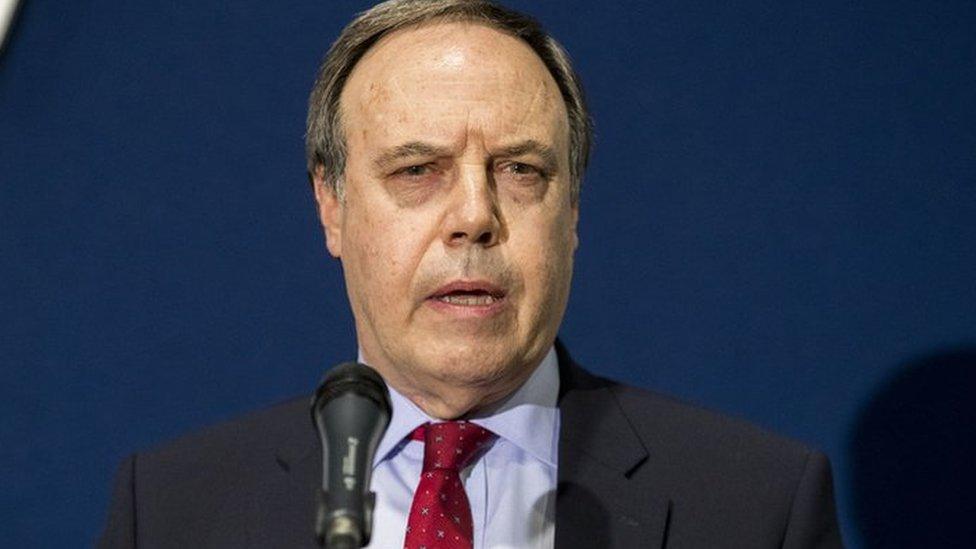
- Published30 January 2021
